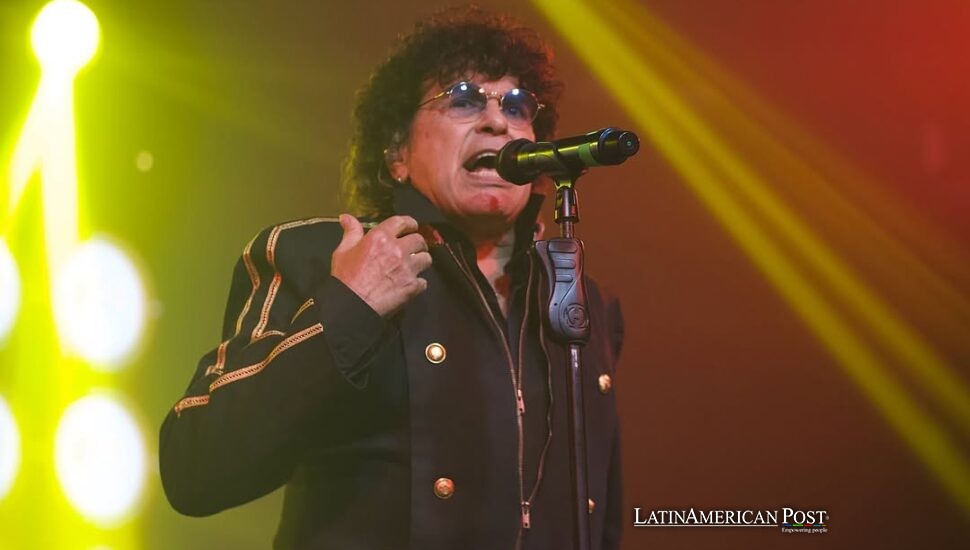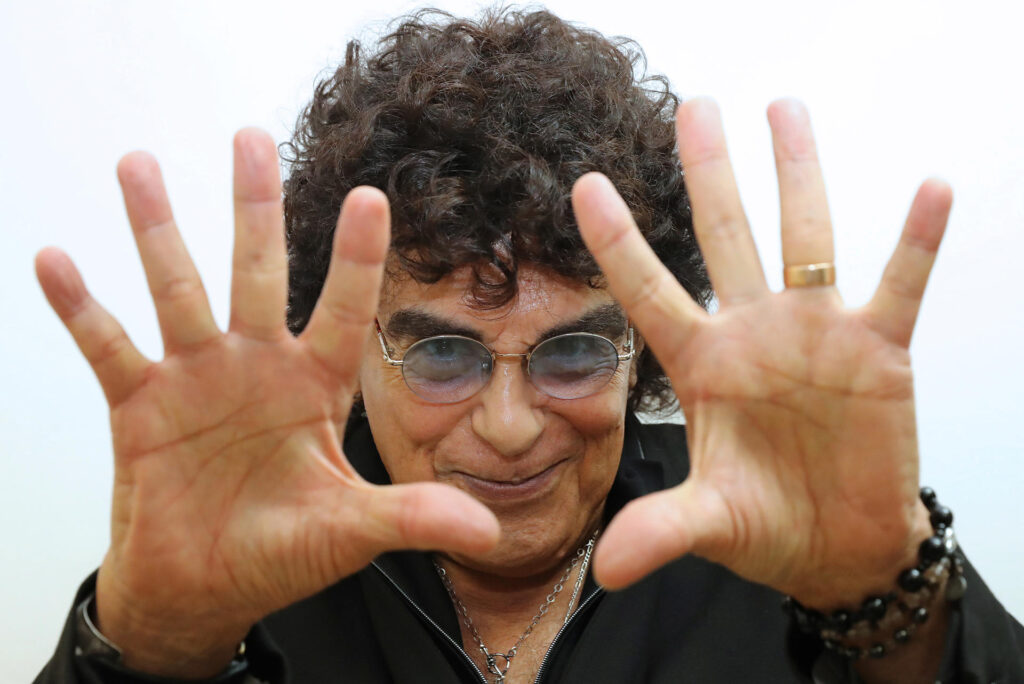Argentine Brizuela Defies the Rise of Reggaetón and Corridos with His “Espíritu Profundo” Rock

Forty years after he became known as El Ángel del Rock, Laureano Brizuela is back—older, wiser, and more defiant than ever. His new studio album, Espíritu Profundo, pairs him with Mexican rock icon Álex Lora and reclaims what he calls “the sacred triangle” of music—melody, harmony, and rhythm—in a world that too often confuses noise with art.
Back to the Studio, Back to First Principles
For Brizuela, the decision came like a melody that wouldn’t leave his head. “In January I decided to record again after many years,” he told EFE, “and after much disgust seeing how disoriented the record industry had become.”
The Argentine-born artist, whose 1980s anthems once echoed across Latin America, didn’t come back to chase a trend. He came back to remind the world why the process still matters. “I can’t change my life,” he said. “I’m going to keep doing what I want to do—walk into a good studio, with good musicians and good songs.”
Espíritu Profundo isn’t just a new album—it’s a manifesto. It blends fresh material with reimagined versions of his classics, all recorded with live musicians, real instruments, and the kind of care that algorithms can’t imitate. For Brizuela, each take is a small act of resistance. “It’s a challenge in times of reggaetón and corridos tumbados,” he told EFE, calling the project “a challenge, not of confrontation, but of clarity.” He concedes that technology has changed everything, but he refuses to let it change him. “The answer isn’t surrender,” he said. “It’s craft.”
A Duet That Scratches and Soars
Among the album’s highlights is “La Mitad de un Corazón,” a blistering duet with Álex Lora—the gravel-voiced frontman of El Tri, a band that helped define Mexican rock. “Álex is a bluesman at heart, even if people see him as a rocker,” Brizuela said with a grin.
Their collaboration happened fast. From Buenos Aires, Brizuela sent over the track; within forty-eight hours, Lora’s vocals came back—rough, raw, and perfect. “I loved his interpretation,” Brizuela told EFE. “His raspy voice and mine create a compelling counterpoint.”
What they built together isn’t nostalgia. It’s dialogue—two veterans carving space for emotion in a landscape dominated by playlists. Lora growls and Brizuela soars, the two of them blending into a sound that remembers where Latin rock came from: the blues, the street, the sweat of real musicians.
The album’s title track adds another dimension. “‘Espíritu Profundo’ is deeply spiritual,” Brizuela said. “It’s based on the message of the Jordan—peace, fellowship, and love among human beings.” He insists he speaks not from religion but from experience. “It’s not about doctrine,” he told EFE, “it’s about humanity.” In his hands, the studio becomes a sanctuary—a place to tune not just guitars but the soul itself.
Cultural Resistance in a Reggaetón Age
Brizuela doesn’t hide his frustration with today’s charts. “We are surrounded by corridos tumbados, reggaetón, and K-pop—music without content,” he said. His voice hardens slightly. “Rock is not a pose. It’s freedom. It’s a message.”
When he talks like this, you hear the echoes of the 1980s—of El Ángel del Rock, the album that gave him his wings and also drew censorship in Mexico. “A secretary of the Interior had to listen to my record before I could appear on television,” he told EFE, half-amused, half-incredulous. “He never made it to the title track, which started with machine guns and helicopters. If he had, it would’ve been banned immediately.”
That mix of humor and defiance is Brizuela’s signature. Back then, he smuggled his messages through melody; now, he’s doing the same against a different kind of censorship—one made of algorithms and trends. “Resisting mediocrity,” he said, “is still part of the job.”

Mexico as Musical Home, Future as Open Road
For Brizuela, Mexico is more than a market—it’s his artistic homeland. “Mexico became my musical home,” he told EFE. “It’s where my true profile as an artist flourished.”
At seventy-six, he still speaks with the energy of a newcomer. “My vocal range hasn’t changed in forty years; maybe now I have more power and more emotional maturity,” he said. The idea of retirement makes him laugh. “Retire from what? From living? Life retires you by itself. As long as I have strength, I’ll keep recording and singing.”
He’s already thinking about what’s next—another collaboration with Lora, a new album in 2026, and perhaps a small tour. “The important thing isn’t fashion,” he told EFE. “It’s honesty. It doesn’t matter what kind of music you make—if it’s authentic, you’ve already won.”
Espíritu Profundo could have been an anniversary album —a museum piece to mark 40 years since El Ángel del Rock. But Brizuela refuses to be framed in nostalgia. He talks about technology reshaping distribution, attention spans shrinking to seconds, and artists chasing clicks instead of craft. His answer is radically simple: write better songs.
He believes melody still matters, that a lyric can still tell the truth. That a singer can still carry faith—not in religion, but in people. “You don’t have to scream rebellion,” he said quietly. “Sometimes it’s enough to sing it honestly.”
Also Read: How Latin America’s Indigenous Rappers Are Rewriting the Soundtrack of Pride
Forty years in, Laureano Brizuela isn’t running from the present—he’s wrestling with it, with the same stubborn grace that once made him El Ángel del Rock. The world may have gone digital, but he’s betting that soul still sells. Espíritu Profundo isn’t chasing algorithms. It’s chasing something rarer: permanence. And that’s precisely what makes it rock.





